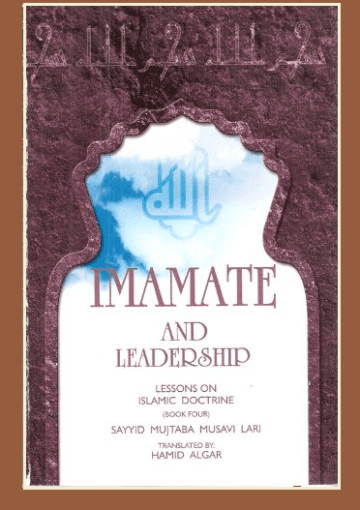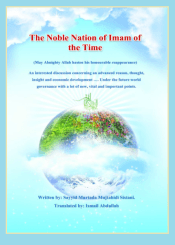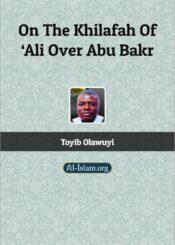Imamate and Leadership Lessons on Islamic Doctrine (book four)

Imamate and Leadership Lessons on Islamic Doctrine (book four)
Author :
Editor :
Interpreter :
Publisher :
Publication year :
2000
Publish number :
Second
Number of volumes :
1
(0 Votes)

(0 Votes)
Imamate and Leadership Lessons on Islamic Doctrine (book four)
Why is the Imamate regarded as a foundational principle of leadership in Islam? Imamate and Leadership: Lessons on Islamic Doctrine (Book Four) examines this question through careful study of Qurʾanic verses, prophetic traditions (hadith), and classical theological reasoning.
About the Book Written by Sayyid Mujtaba Musavi Lari and translated into English by Hamid Algar, this volume was published in the mid-1990s by the Sayyid Mujtaba Musavi Lari Foundation for Islamic Propagation. It provides a systematic exploration of the doctrine of Imamate as understood in Shia theology, particularly its necessity, divine designation, and rational basis. Drawing upon Sunni hadith collections, Qurʾanic exegesis (tafsir), and rational arguments, the book addresses themes such as the Prophet Muhammad’s (peace be upon him and his Family) declaration of Imam Ali’s (ʿa) leadership, the qualities required of a divinely appointed leader, and the role of Imamate in safeguarding the unity and stability of the Muslim community.
What You Will Discover
- Evidence from Qurʾan and prophetic traditions (hadith) that highlight the necessity of Imamate.
- Arguments showing the rational and theological basis for divine designation of leadership.
- Close analysis of transmission (isnād, chain of narrators) and wording (matn, text of the report) in key hadith.
- Discussion of historical events that shaped debates on succession and leadership.
- How the doctrine of Imamate informs Shia perspectives on religious and political authority.
About the Author Sayyid Mujtaba Musavi Lari (1925–2013) was a leading Shia scholar noted for his works on Islamic doctrine and ethics. His writings combine scriptural sources with rational argument, making complex theological ideas accessible. The English translation by Hamid Algar conveys the depth of the original text while remaining clear for modern readers.
Who Is This Book For? This book is essential for students of Islamic theology, researchers of Shia–Sunni comparative studies, and readers interested in the principles of leadership and authority in Islam through the doctrine of Imamate.






